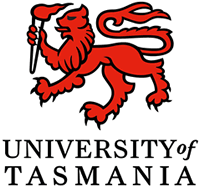Dr C Watson, Prof Matt King
Applications accepted all year round
Funded PhD Project (Students Worldwide)
About the Project
Global-average sea level rose around 0.2 metre during the last century and is projected to rise by up to one metre during the present century as a result on ongoing warming of the atmosphere and oceans. This rise leads directly to an increase in the frequency of extreme sea-level events (floods), even without any increase in storminess. This is the main way in which the impacts of sea-level rise will be experienced and therefore it is necessary that these extremes are adequately monitored.
Sea level and its variations may be measured at coastal locations using tide gauges and, over most of the world’s oceans, using radar altimeters aboard satellites. While tide gauges can continuously measure sea level over a wide range of time scales (from minutes to years), a satellite only measures the sea level at as it passes over a given location (typically one every ten days). Tide gauges therefore provide a rich data source of sea-level extremes while, until now, satellite altimeters have been unable to capture sufficient information at a given place to adequately describe the statistics of the extremes. The situation is, however, changing as the overall satellite altimeter record increases in length, and more satellites are providing altimeter data.
The PhD project will investigate ways of obtaining useful statistical descriptions of sea-level extremes with global coverage using satellite altimeter records. This will involve the use of data from multiple altimeters, longer records and a range of analysis techniques for estimating the extremes’ statistics. If the resultant information is sufficiently robust, it will be suitable for informing planning and policy-making around the Australian coastline . The work will form part of an Australian Research Council Discovery Project and will benefit from the improved coastal altimeter products that will be derived from other parts of that project.
The supervisory team is led by Dr Christopher Watson and includes Dr John Hunter and Prof Matt King.
Funding Notes
Scholarships are valued at AUD $25,849 per annum (tax free) for 3.5 years. Scholarships at the Elite Level (additional $7500 per year, tax free) are available for exceptional students.
Overseas students will require an international fee waiver which are highly competitive - in such cases an international peer-reviewed journal publication is likely to be required prior to application. International students require IELTS >=6.5 overall and >=6.0 in all components.
**Please send a full CV, academic transcript and (for overseas applicants) confirmation of your IELTS results when enquiring.
References
Hunter, J., 2012. A simple technique for estimating an allowance for uncertain sea-level rise. Climatic Change 113, 239.
Menéndez, M. et al., 2010. Changes in extreme high water levels based on a quasi-global tide-gauge data set. J. Geophys. Res. 115, C10011 .
Haigh, I. et al., 2012. Estimating present day extreme total water level exceedance probabilities around the Australian coastline, Technical Report TR STM05 120620, Antarctic Climate & Ecosystems Cooperative Research Centre.

 Continue with Facebook
Continue with Facebook

